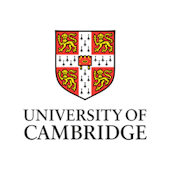Kathy Liddell is the Founding Director of the Cambridge Centre for Law, Medicine and Life Sciences, and a member of the Cambridge Centre for IP and Information Law.
She is the Herschel Smith Reader in Intellectual Property and Medical Law.
Kathy undertook her doctorate in law at the University of Oxford focussing on the regulation of controversial genetic technologies in morally pluralist societies. In addition to substantial experience in academia, Dr Liddell has worked in private legal practice and in public sector legal services for a health department. This work history has provided her with a solid knowledge of commercial realities and needs, as well as experience in legal policymaking. She has degrees in law and science from the University of Melbourne and bioethics from Monash University, and is a strong advocate of interdisciplinary research.
Dr Liddell’s research focuses on health, medicine and society, with the aim of understanding and improving the legal frameworks that govern and support innovation in this field. A key theme in her research is to examine ways in which intellectual property rights help and hinder the translation of medical discoveries into effective, affordable clinical treatments and diagnoses, and how such frameworks could be modified to be more effective and just. Currently, Dr Liddell is involved with an international collaboration which aims to investigate intellectual property law in five areas of bioinnovation: (i) repurposing pharmaceuticals; (ii) antibiotics; (iii) biologics; (iv) rare diseases; and (v) machine-learning based precision medicine. Dr Liddell has also been the principal investigator in a large research project examining intellectual property rights, precision medicine and genomic medicine (2015-2018). Other research, not currently the focus of large grants, includes regulation of diagnostics, pharmaceuticals, clinical trials, precision medicine, biobanks and bioresources, machine learning in healthcare, stem cells and other regenerative technologies, gene editing, the use of biomaterials and biodata in medical research, and human enhancement.
Another key theme in Dr Liddell's research is to identify and address legal lacunae and 'pinch points' that impede clinically useful and ethically responsible healthcare. A current example of this work is in the field of pre-mortem interventions to improve the success of DCD organ transplantation. A third theme is to improve empirical evidence for legal policy, and a fouth theme is to use leading theoretical insights from regulatory and political/moral theory to shift opinions about the regulation of biomedical controversies.
Dr Liddell uses a wide range of legal methodologies in her research including in-depth statutory and case law analysis, normative analysis drawing on moral and political philosophy, policy development drawing on regulatory theory, empirical investigations (including interviews, surveys and patent mapping), and expert meetings.
Dr Liddell has taught on a variety of courses iincluding Law and Ethics of Medicine (tripos seminar); Law, Medicine and Life Sciences (LLM Paper 1); Intellectual Property (LLM Paper 12), Intellectual Property (tripos Paper 45) International Intellectual Property (LLM), Tort law supervisions (Downing college) and the Law PhD Research Methodologies course. She also supervises research theses at all levels includng PhD students.
Dr Liddell is also a Senior Fellow at the University of Melbourne where she teaches 'Law and Emerging Health Technologies' (intensive LLM course).
Experience
-
–presentReader, University of Cambridge
- Website
- Article Feed
- Joined


